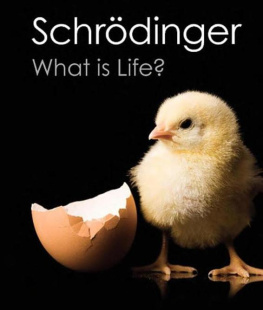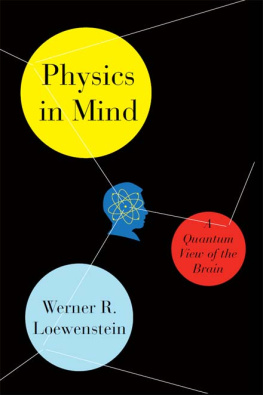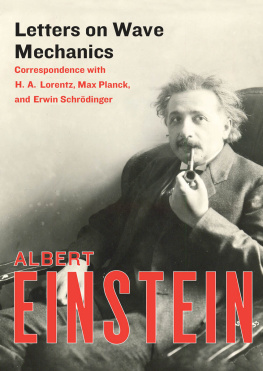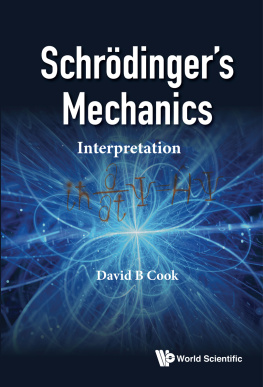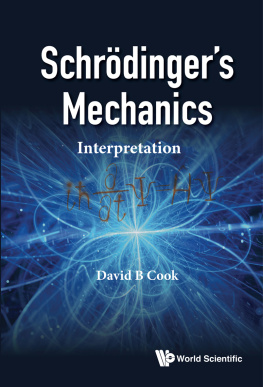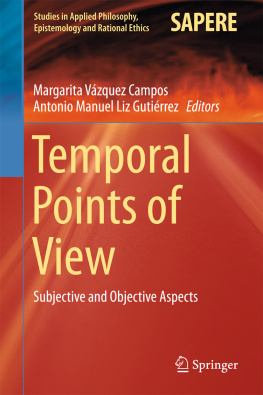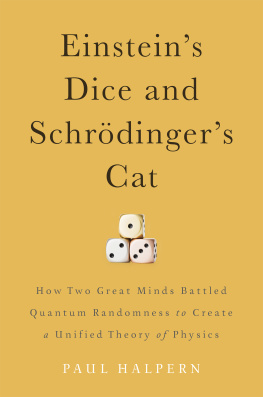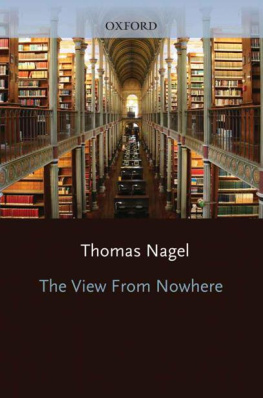MY VIEW OF THE WORLD
By the same Author
WHAT IS LIFE?
SCIENCE AND HUMANISM
SPACE-TIME STRUCTURE
STATISTICAL THERMODYNAMICS
NATURE AND THE GREEKS
MIND AND MATTER
EXPANDING UNIVERSES
ERWIN SCHRDINGER
MY VIEW OF THE WORLD
Translated
from the German by
CECILY HASTINGS

CAMBRIDGE UNIVERSITY PRESS
Cambridge, New York, Melbourne, Madrid, Cape Town, Singapore, So Paulo, Delhi
Cambridge University Press
The Edinburgh Building, Cambridge CB2 8RU, UK
Published in the United States of America by Cambridge University Press, New York
www.cambridge.org
Information on this title: www.cambridge.org/9780521062244
Paul Zsolnay Verlag GMBH Hamburg-Vienna, 1961
English Translation Cambridge University Press, 1964
This publication is in copyright. Subject to statutory exception and to the provisions of relevant collective licensing agreements, no reproduction of any part may take place without the written permission of Cambridge University Press.
First published 1964
This digitally printed version 2008
A catalogue record for this publication is available from the British Library
ISBN 978-0-521-06224-4 hardback
ISBN 978-0-521-09048-3 paperback
CONTENTS
FOREWORD
The two essays here published for the first time are separated by an interval of thirty-five years. The first and longer one was written shortly before my appointment as Max Plancks successor in Berlin, and a few months before the idea of what is now called wave mechanics began for a while to monopolise my whole interest; the second and shorter one dates from two years after my appointment as Professor Emeritus at the University of Vienna. The two are closely related in theme, and, of course, also connect with many ideas which I have publicly advocated in the intervening period.
I do not know whether it is presumptuous of me to suppose that readers will be interested in my view of the world. The critics, not myself, will decide on this. But a gesture of decorous modesty is usually in fact a disguise for arrogance. I should prefer not to be guilty of this. Anyway, the total (I have counted) is about twenty-eight to twenty-nine thousand words. Not an excessive size for a view of the world.
There is one complaint which I shall not escape. Not a word is said here of acausality, wave mechanics, indeterminacy relations, complementarity, an expanding universe, continuous creation, etc. Why doesnt he talk about what he knows instead of trespassing on the professional philosophers preserves? Ne sutor supra crepidam. On this I can cheerfully justify myself: because I do not think that these things have as much connection as is currently supposed with a philosophical view of the world. I think that I see eye to eye here, on certain essential points, with Max Planck and Ernst Cassirer. In 1918, when I was thirty-one, I had good reason to expect a chair of theoretical physics at Czernowitz (in succession to Geitler). I was prepared to do a good job lecturing on theoretical physics, with, as my supreme model, the magnificent lectures given by my beloved teacher Fritz Hasenhrl, who had been killed in the War; but for the rest, to devote myself to philosophy, being deeply imbued at the time with the writings of Spinoza, Schopenhauer, Mach, Richard Semon and Richard Avenarius. My guardian angel intervened: Czernowitz soon no longer belonged to Austria. So nothing came of it. I had to stick to theoretical physics, and, to my astonishment, something occasionally emerged from it. So this little book is really the fulfilment of a very long cherished wish.
E.S.
ALPBACH
July 1960
PUBLISHERS NOTE
The Syndics of the Cambridge University Press are greatly indebted to Professor O. R. Frisch for his help in the preparation of this edition.
SEEK FOR THE ROAD
Wo Rtsel mich zu neuen Rtseln fhrten
Da wussten sie die Wahrheit ganz genau.
GRILLPARZER
Where riddles led me on to further riddles,
To them the truth was quite precisely known.
AUTUMN, 1925
I
METAPHYSICS IN GENERAL
It is relatively easy to sweep away the whole of metaphysics, as Kant did. The slightest puff in its direction blows it away, and what was needed was not so much a powerful pair of lungs to provide the blast, as a powerful dose of courage to turn it against so timelessly venerable a house of cards.
But you must not think that what has then been achieved is the actual elimination of metaphysics from the empirical content of human knowledge. In fact, if we cut out all metaphysics it will be found to be vastly more difficult, indeed probably quite impossible, to give any intelligible account of even the most circumscribed area of specialisation within any specialised science you please. Metaphysics includes, amongst other thingsto take just one quite crude examplethe unquestioning acceptance of a more-than-physicalthat is, transcendentalsignificance in a large number of thin sheets of wood-pulp covered with black marks such as are now before you.
Or, to take it at a deeper level: call to mind that sense of misgiving, that cold clutch of dreary emptiness which comes over everybody, I expect, when they first encounter the description given by Kirchhoff and Mach of the task of physics (or of science generally): a description of the facts, with the maximum of completeness and the maximum economy of thought; a feeling of emptiness which one cannot master, despite the emphatic and even enthusiastic agreement with which ones theoretical reason can hardly fail to accept this prescription. In actual fact (let us examine ourselves honestly and faithfully), to have only this goal before ones eyes would not suffice to keep the work of research going forward in any field whatsoever. A real elimination of metaphysics means taking the soul out of both art and science, turning them into skeletons incapable of any further development.
But theoretical metaphysics has been eliminated. There is no appeal against Kants sentence. Philosophy of the post-Kantian periodperhaps right down to our own dayhas shown us the tormented writhings of the long-drawn-out death agony of metaphysics.
Speaking as a scientist, it seems to me that it is our uncommonly difficult task, as post-Kantians, on the one hand step by step to erect barriers which will restrain the influence of metaphysics on the presentation of facts seen as true within our individual fieldswhile on the other hand preserving it as the indispensable basis of our knowledge, both general and particular. It is the apparent contradiction in this which is our problem. We might say, to use an image, that as we go forward on the road of knowledge we have got to let ourselves be guided by the invisible hand of metaphysics reaching out to us from the mist, but that we must always be on our guard lest its soft seductive pull should draw us from the road into an abyss. Or, to look at it another way: among the advancing hosts of the forces of knowledge, metaphysics is the vanguard, establishing the forward outposts in an unknown hostile territory; we cannot do without such outposts, but we all know that they are exposed to the most extreme danger. Or again: metaphysics does not form part of the house of knowledge but is the scaffolding, without which further construction is impossible. Perhaps we may even be permitted to say: metaphysics turns into physics in the course of its developmentbut not of course in the sense in which it might have seemed to do so before Kant.
Next page

